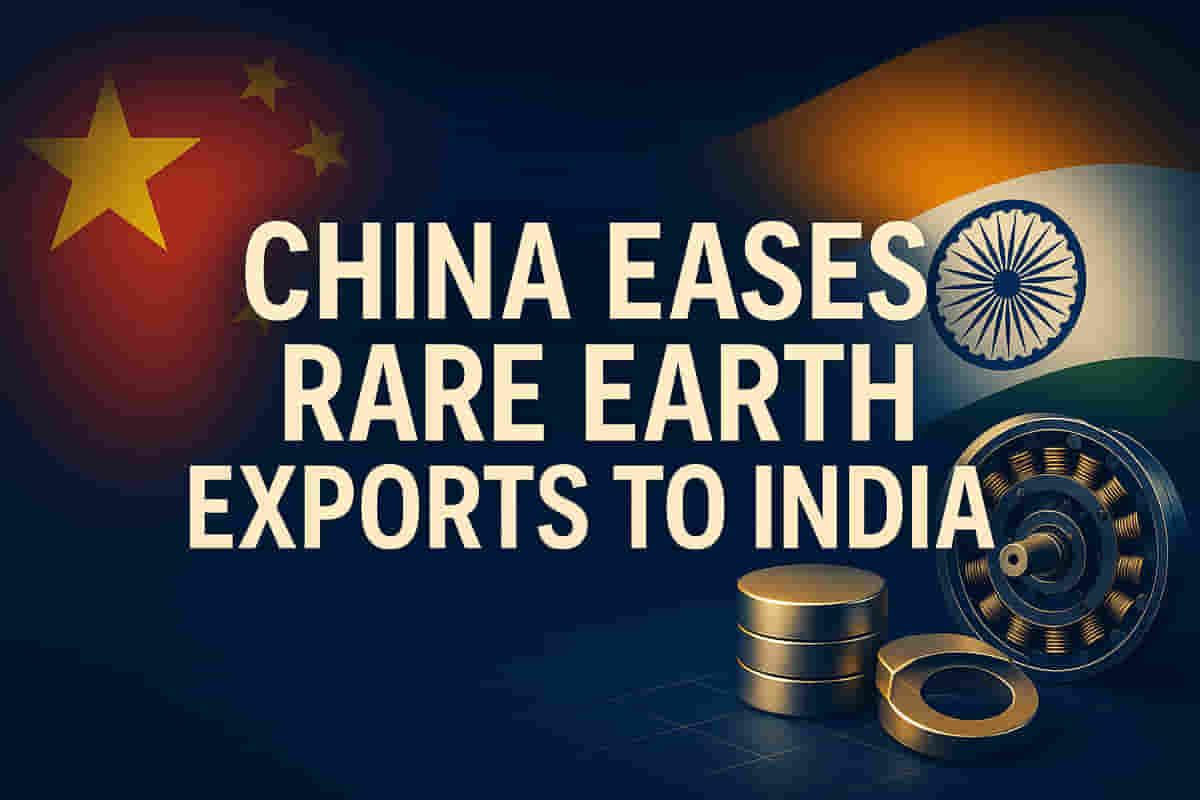China Issues Rare Earth Magnet Export Licenses to Indian Companies Amid Trade Easing
Auto
|
30th October 2025, 3:23 PM

▶
Stocks Mentioned :
Short Description :
Detailed Coverage :
Heading: China Relaxes Rare Earth Magnet Exports for India
China has confirmed the issuance of export licenses for rare earth magnets to certain Indian companies, providing a much-needed reprieve for India's vital automotive and electronics industries. This decision comes more than six months after China imposed export restrictions on these critical materials and is further bolstered by a one-year trade agreement between China and the United States, which includes understandings on rare earth supplies. The curbs had significantly disrupted production for Indian companies, particularly those in the electric vehicle (EV) segment.
Randhir Jaiswal, Spokesperson for India's Ministry of External Affairs (MEA), stated that licenses have been received by some Indian firms. This follows discussions at the highest levels, including a meeting between Chinese President Xi Jinping and U.S. President Donald Trump, where China's export controls on rare earths were a key point of negotiation.
Reportedly, companies such as Jay Ushin Ltd, De Diamond Electric India Pvt. Ltd, and the Indian units of automotive component manufacturers Continental AG (Germany) and Hitachi Astemo (Japan) are among those that have received licenses.
Impact This development offers significant short-term relief by stabilizing the supply chain for essential components needed in advanced manufacturing. However, analysts emphasize that Indian Original Equipment Manufacturers (OEMs) should prioritize localizing production within India to achieve long-term self-sufficiency and mitigate future geopolitical supply risks. The deferment by China of additional export curbs, originally set to take effect from November 9, also benefits Indian importers, who faced stringent requirements like export licenses and end-user certificates. The Indian Embassy in Beijing has played a crucial role in engaging with the Chinese government to resolve these supply issues.
Impact Rating: 7/10
Difficult Terms Explained: Rare Earth Materials: A group of 17 metallic elements with unique properties that are essential for many advanced technologies, including magnets, electronics, batteries, and defense systems. Export Restrictions: Government-imposed limitations or prohibitions on the sale and shipment of goods from one country to another. Export Licenses: Official permits granted by a country's government that authorize the export of specific goods or materials. Trade Truce: A temporary agreement between two or more countries to suspend or halt trade disputes or the imposition of tariffs and other trade barriers. End-User Certificate: A document signed by the buyer of goods, confirming that they will use the products for the stated purpose and will not re-export them or use them for unauthorized applications, such as military purposes. Original Equipment Manufacturers (OEMs): Companies that produce finished products, which are then often sold under the brand name of another company.